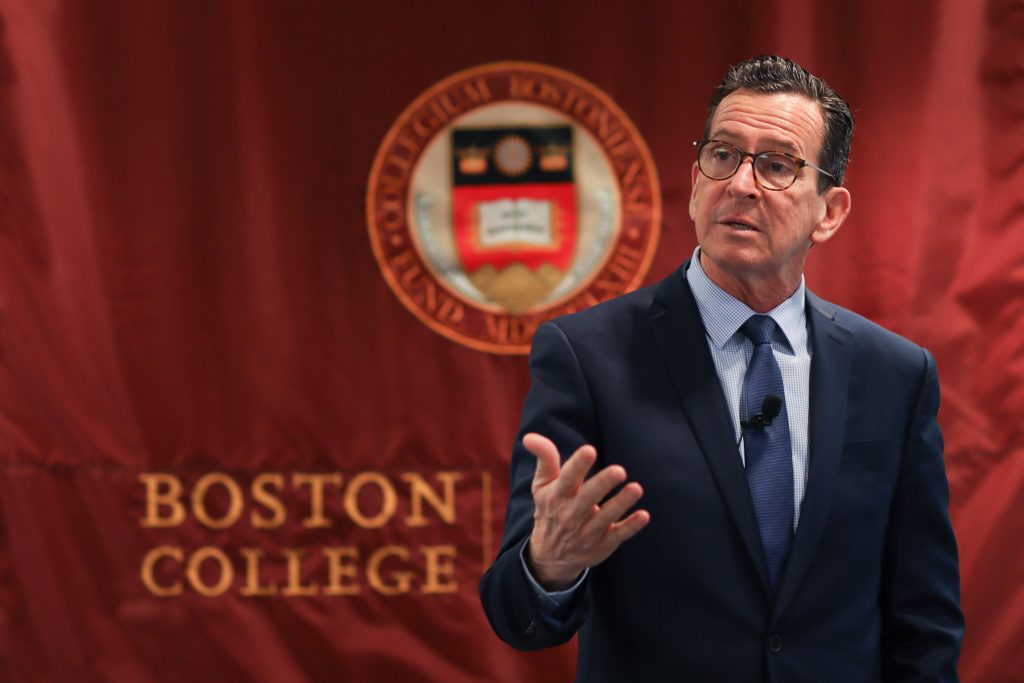Law schools must produce more lawmakers, former Connecticut Governor Dannel P. Malloy ’80 told more than 120 students, faculty, and staff at BC Law on January 23.
“My mother would say to me, ‘Dannel, you have an obligation to leave the world a better place for your having lived in it.’ She didn’t just say that once—or 20 times—she literally said it to me every day when we were in one another’s presence,” he said. “When I was a first year law student and I would call home, she would repeat it on the phone. Law was a good preparation for leaving the world a better place for my having lived in it.”
Malloy, the Connecticut’s 88th governor who recently left office and returned to his alma mater as this semester’s Jerome Lyle Rappaport Visiting Professor in Law and Public Policy, said not enough attorneys are going into public service to realize their obligations.
“Legislatures make laws, and there’s a paucity of talent involved in that very difficult line of work. We need some of you to say, ‘I will devote some period of time to public service,’” Malloy said. “If we don’t produce people in law school who are willing to spend some portion of their life in public service, then we are going to be in even bigger trouble than we are now.”
A student who had to overcome learning and physical disabilities, Malloy earned both his BA and JD from Boston College and started his career as an Assistant District Attorney in Brooklyn, New York. He entered politics in 1995 as the mayor of his hometown, Stamford, Connecticut, a position he held for 14 years.
In 2011, Malloy was elected as the first Democratic governor of Connecticut in 24 years. Over the next eight years, he left his mark as a progressive leader who championed divisive issues, including establishing stricter gun control following the Sandy Hook Elementary School shooting in 2012; accepting Syrian refugees; abolishing the death penalty; and implementing tax hikes to stabilize the state’s budget.
“You have to be willing to do the right thing,” he said, adding that it was easy for him to do that because he didn’t think he’d be re-elected. He did not run for a third term and left office on January 9.
As a former prosecutor, Malloy also has been a strong advocate for criminal justice reform and stressed the importance of creating a correctional system that emphasized rehabilitation over punishment.
“We’ve developed a system of criminal justice that goes to continual punishment,” he said. “You commit a felony crime and can’t get a student loan, you can’t live in public housing, and you can’t get a job. And then we wonder why we have recidivism rates the likes of which we have in the United States. It doesn’t make any sense.”
In a question-and-answer session that followed his address, Malloy also discussed his work to shrink Connecticut’s racial achievement gap; reduce drug possession laws’ disparate impact on people of color and the poor by decriminalizing small amounts of marijuana; and ending homelessness among veterans in the state.
Malloy’s talk was titled “A Special Responsibility for the Quality of Justice: A Governor’s Trained Eye in Guiding Public Policy,” and it was the inaugural address of his visiting professorship at BC Law’s Rappaport Center for Law and Public Policy.


